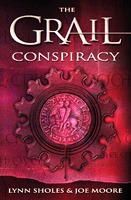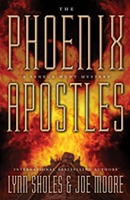Yesterday Philip Pullman (author of His Dark Materials series) tweeted an observation that, when a ‘children’s book goes wrong, it’s often because the author is thinking of the readers and not the story. That might be true of other books too.’ While I would agree this can happen, I would also argue that sometimes a book ‘goes wrong’ when the author fails to pay sufficient attention to his or her readers – particularly in genre fiction. I’m talking about reader expectations. Stories can run aground (particularly during the publishing process) when authors fail to consider (or live up to) reader expectations.
When we critique first pages here, we often (consciously or not) consider the conventions of the genre we are considering. A couple of weeks ago we critiqued the first page of a fantasy novel that was a prologue – a device that is both familiar and welcome in the fantasy genre but which, in many other genres like mystery and thrillers, is less enthusiastically embraced. Mysteries and thrillers have a number of so-called conventions which are really more about reader expectations than story structure. Similar conventions abound in other genre fiction like fantasy and romance. When I wrote my first novel, I didn’t consider genre or reader expectations (except my own) but once the book was sold as a mystery, I needed to make revisions to make sure that it conformed to what readers would expect from the start of a historical mystery series with a female amateur detective. Now, I’m more likely to subconsciously take into account reader expectations while I’m writing an initial draft – but that doesn’t mean I artificially try to change the story to suit what I think some hypothetical reader will want. Nonetheless, reader expectations still play an important role in the revision process.
Failure to live up to reader expectations could be the reason a novel doesn’t get published or doesn’t sell as well as it could once released. Similarly, especially in the children/MG/YA space, even though a writer should never underestimate their readership (after all, nobody wants to read a book that talks down to them), failure to take into account the age of the target audience can make a book hard to position in the marketplace.
I think Philip Pullman was probably trying to highlight circumstances in which a writer focuses too much on what they think a reader will want from the story, rather than letting the story unfold. I have heard of some cozy mystery writers who have tried to tailor their stories to what they think publishers (and, by default, readers) want, in an effort to make their story more marketable/publisher friendly. This rarely succeeds unless the writer is authentic in their story choices – you can’t manufacture a story to suit what you think are the publishing trends or reader likes/dislikes.
So TKZers what do you think of Philip Pullman’s assessment? How often do you think stories ‘go wrong’ because writers are thinking of readers rather than the story?



